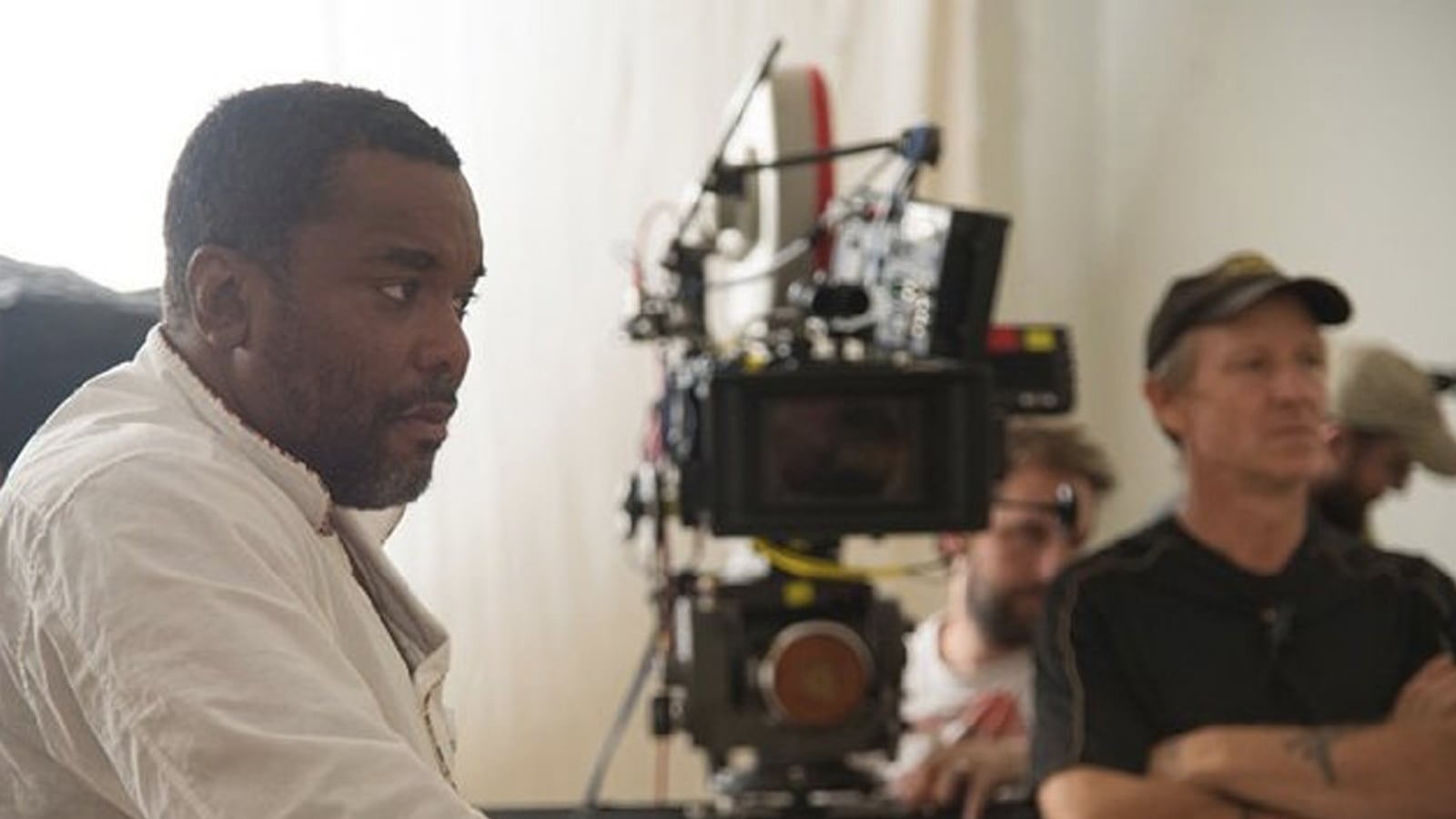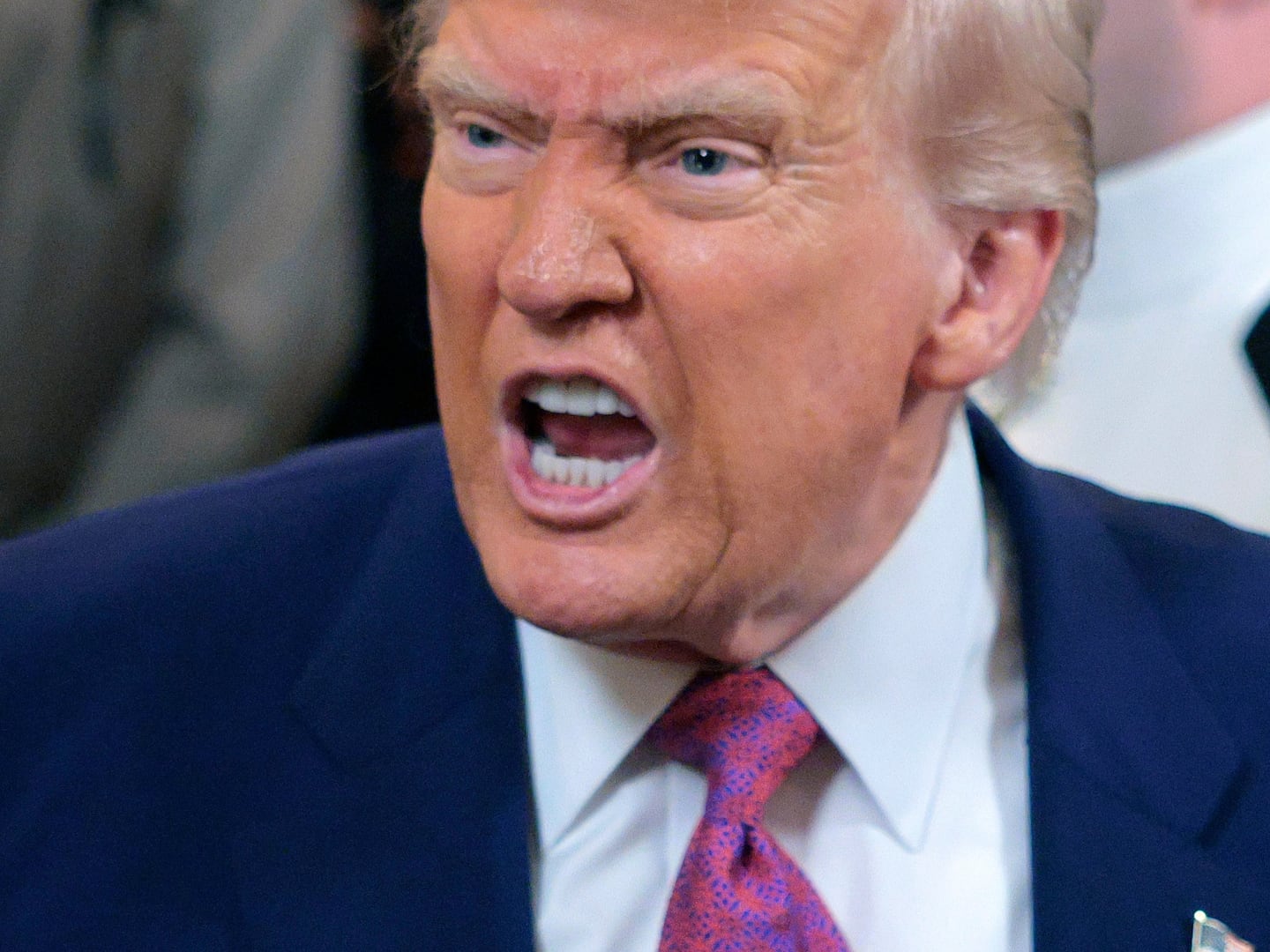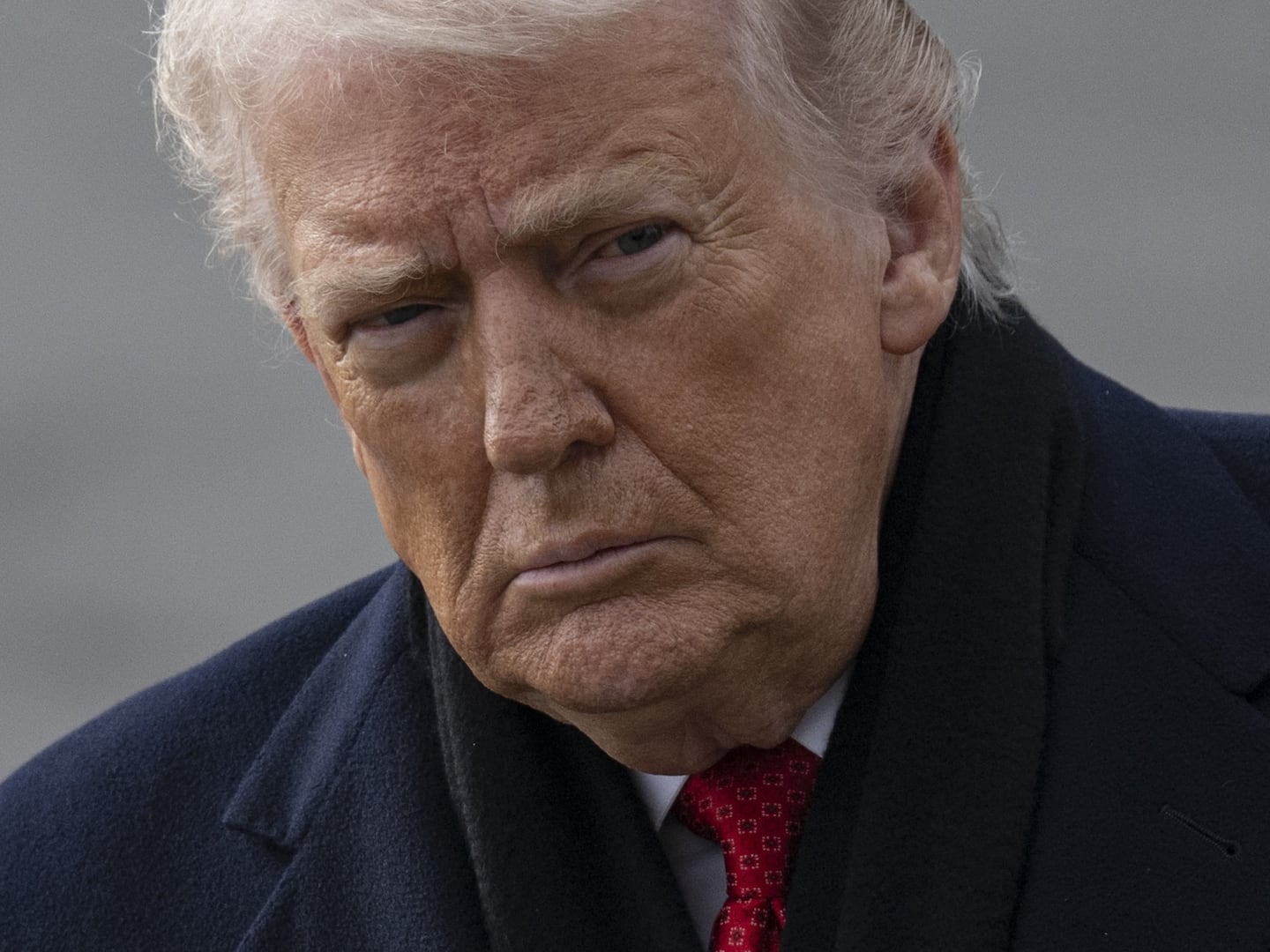Lee Daniels is an anomaly.
By the age of 21, he ran his own nursing agency, before transitioning into a career as a casting director and talent manager. He eventually started a production company, Lee Daniels Entertainment, whose first film was 2001’s Monster’s Ball, a riveting race-relations drama for which Halle Berry was awarded the Best Actress Oscar, becoming the first—and only—African-American woman to win an Academy Award for a lead performance. Daniels would eventually turn to filmmaking, and helmed 2005’s Shadowboxer before becoming a household name with 2009’s Precious. The film garnered six Oscar nominations including Best Picture and Best Director, making Daniels only the second African-American to receive the honor.

Daniels’s latest film is Lee Daniels’ The Butler. It’s based on the real-life story of Eugene Allen, an African-American man who worked in the White House for 34 years and served as an eyewitness to some of the most important social and political events of the 20th century, before retiring as head butler in 1986. In the film, his name has been changed to Cecil Gaines, and Oprah Winfrey plays his devoted wife, Gloria. David Oyelowo is featured as Gaines’s eldest son, Louis, along with several stars as politicians, including Robin Williams (Eisenhower), James Marsden (JFK), Liev Schreiber (Johnson), John Cusack (Nixon). The list goes on.
How difficult was it to get The Butler made?
It took us four years to get the movie made. But that’s indicative of my struggle in all of my work. From Monster’s Ball on, it’s been trying to get people to believe in me and my vision. Getting money raised for any movie is hard, but getting raised for movies in this world—African-American cinema—is even harder.
Even Red Tails had trouble getting made with George Lucas on board.
It’s crazy. But I think it’s great what’s happening right now. There are so many incredible films with so many incredible filmmakers of color that are out doing their thing. We have a great African-American that’s running the DGA [Paris Barclay], and an African-American woman [Cheryl Boone Isaacs] that’s running the Academy. I think we’ve come a long way, and we’re almost there.
And there was another director initially attached, right?
Steven Spielberg, but he went to do Lincoln. I took his backwash! [laughs] The brilliant Laura Ziskin, who produced Pretty Woman and Spider-Man, optioned the story on Eugene in The Washington Post, and she raised money for the project until the day she died. She put money aside in her will so that this film could still be developed.
How did you assemble this crazy cast?
I think Danny Strong’s script spoke volumes to the actors, and they were so honored to serve the material. That’s what attracted me, too. From there, it’s a matter of who’s right for the role. And I think everyone that’s in the film, from John Cusack to Liev Schreiber to Jane Fonda to Vanessa Redgrave—these are people who are not just celebrities and strong actors, but people who stand by their political conviction. None of them are afraid to speak their minds publicly. Rarely do celebrities and actors speak up for what they believe in.
The rumor is that Obama was supposed to make a cameo.
I wanted him to, which is true, but I didn’t even have the nerve to ask him. It was written in the script that Cecil would walk down the White House’s red carpet, and the last thing he saw was Obama turn his face. After Oprah was cast, I was like, “Do I get her to call Obama?” But I got too nervous because he was running for reelection, and I didn’t want it out there that I asked him and he said no, because it would put a weird spin on it. But we never asked him. I told him, though, when I saw him at a fundraiser. I said, “We wanted you to play you in the movie, but I was too scared to ask you!” And he just laughed and looked at me like, “OK! And?” I think that was my answer right there! [laughs]
And how did you get Oprah on board?
She auditioned—but I begged and pleaded with her to. David [Oyelowo] was on board first, and he didn’t have to audition, and then Oprah came in to do a reading with Forest. I knew immediately that the chemistry was a Molotov cocktail. Magic. They read the birthday scene where they find out that their son Charlie is dead. And it took me about seven or eight months to convince her to take the part.
What was the most difficult part of filming?
Anything in the White House, really, because I’ve never been to the White House, so I was shadowboxing. I needed to make sure everything was right.
So you’ve never gotten the White House invite?
I’ve gotten it, but I’ve never made it. I’m always workin’, man. I gotta pay the light bills.
And you even worked on those PSAs in 2004 with Bill Clinton to get young people of color to vote.
But that’s ’cause he was sittin’ on my steps! I had just gotten this place in Harlem, and I was trying to get home and the street was blocked off. This was before Harlem became an interracial neighborhood and stuff, so I thought there was a drug raid or something. And I look over and it wasn’t police—it was a barricade for Secret Service people, and Clinton is sitting on the front doorsteps, my stoop. I’m not star-struck—except for with Susan Lucci, whom I’ve never met—but with Clinton, I made a fool of myself. I was like, “I made this movie called Monster’s Ball, would you like a copy? I’ll give you a copy!” Ran up three flights of my brownstone and ran downstairs, gave him the copy, and then he asked if I’d do PSAs to get young people of color out to vote, and I said, “OK!”
So … Hillary 2016?
It’s too soon for that! I hope she does run. How cool would it be if she and Michelle [Obama] ran together! Wouldn’t that be beyond? Or … how about a gay president?
That’d be something. And you, as an openly gay director, must be thrilled by how the tide is turning when it comes to gay rights.
It’s the civil rights movement of our time. It’s another form of what African-Americans went through during my mother’s time, and it’s an issue that must be addressed. I wasn’t just bullied in this white school that I went to and called, “N***r, n***r, n***r!” in junior high. I was also bullied in the black community in elementary school because I was gay. I didn’t even know I was gay, but I knew I was different, and they’d say, “F***t, f***t, f***t!,” and “S***y, s***y, s***y!,” and I was too afraid to go to the bathroom. I had trained myself not to go to the bathroom throughout my elementary and junior high school years, because I was bullied. And you don’t understand why you’re being bullied, so you just suppress it. It really affects your spirit, and you can rise out of the ashes, or get strung out on drugs and have low self-esteem. But absolutely, we have a long way to go still when it comes to how gays are treated. It’s great that gay men are able to get married, but we need to address the bullying.
Now, one of the interesting aspects of the film is Cecil’s relationship with his eldest son, and the idea of servitude—whether Cecil is an “Uncle Tom,” as his son calls him in a fit of rage, or he’s helping the advancement of African-Americans.
Well, who is right, and who is wrong? It’s also generational. With my son, I hope I’m doing great strides for black cinema, but for my son, it’s not enough. He says, “I want someone my age—who looks like me—to be Superman, or be Spider-Man. Will Smith and Denzel Washington are actors of my generation, but my son wants to see a 20-something playing a superhero. So, he can’t figure out why I’m settling for this, and it’s incomprehensible for him to understand that we’ve come a very long way. It’s the same difference as what we’re dealing with when it comes to Cecil and Louis. It’s generational.
One of the big themes of the film is racial injustice, and the African-American fight for equal rights. What is your take on the state of affairs today? Obama’s speech after the Zimmerman verdict was very powerful, about how he relates to Trayvon Martin and knows what it’s like to be followed around department stores.
I loved it. I’m happy that he said it because I didn’t think it was politically correct to say that we are. It was almost politically incorrect for us to say what we experience as black men every day. You know, I thought we were doing great until my son tells me we’re not.
Did he tell you that after the Zimmerman verdict?
I think it was after the Zimmerman verdict that he just said, “Why am I settling?” And I said, “Kid, do you realize how far we have come?” And then he makes me feel like I’m crazy. Again, I don’t know that I have the right answer. We’ve come so far. We have a black president.
Half-black.
In America’s eyes, he’s black. If you have a drop of black in you, you’re black. I don’t care how light you think you are. Mariah Carey, Lenny Kravitz, they don’t look at themselves as white. They walk out the door and they’re black.
There are also different approaches toward racism. There’s the more subtle racism in the North, which is what Obama discussed, and then there’s the more in-your-face racist attitude in the South.
In-your-face is a good thing. Call me out. I want to live in my truth. Tell me you don’t like me, and I know it. But when you don’t tell me, and you work behind my back, it’s a lie and I don’t know how to fight that. The racism is very subtle, so they just stand there and they wait, do other things, go behind the counter at the store or restaurant, and they get to you when they get to you, and it chips away at your spirit and who you are as a person. Just don’t wait on me and tell me you’re not because of this or that, and I’ll just go walk away and do my thing, as opposed to sitting there waiting and waiting. It’s very sadistic.
It’s refreshing that a white filmmaker did not direct this film. And we see that all the time with films like The Help and 42—these odd, Disney-fied, sanitized versions of African-American history.
I’m excited that African-American stories are being told, period. I’m grateful for that. But my son is not. He’s saying, “This is not the truth,” and it goes back to the generational differences. I’m just honored that people think enough of African-Americans to tell our stories. Sure, would I love for black filmmakers to be tackling them, since we’ve lived through it and it’s our truth? Yes. But we also have a lot of films by black filmmakers coming out soon—the two Mandela films, Black Nativity, and others. We’ve come a long way.
Why are films tackling slavery trending right now? This year, we have The Butler, 12 Years A Slave, and others, and last year, we had Lincoln and … Django Unchained.
[Laughs] Django. You’re so funny.
I had an interesting chat with Tavis Smiley about Django. He hated it.
Me too! I didn’t understand it! I was like, “Are you joking me?” And then everybody else loved it, so I thought I was crazy! And I’m so happy that Spike spoke up about it.
But back to the slave dramas. Why are they trending?
The slave dramas are trending because people want to know. We know all about the atrocities that have happened to other people overseas, so why can’t Americans have committed atrocities? American history, to me, is the civil rights movement. We did not ask to be brought over here. We did not ask to have the things done to us when Lincoln freed us. We did not ask to be second-class citizens, to be lynched, to not be allowed to vote. All of this stuff happened, and IT IS American history, and it’s more important than any of the wars or anything. And I say that not as an African-American, but as an American. We came here when this country was established as slaves. And we’re still getting shot, and white men still can kill us, and white men can still get away with it.
Look, when I make a movie, I go into this cocoon—this bubble—and I’m cut off from the world. My boyfriend is mad at me, I’m overweight, my kids aren’t speaking to me and are all, “Where have you been?” So, when we wrote that line, “Any white man can kill any black man and get away with it,” and I come out, and there’s Trayvon Martin, I’m thinking, “What the? This is unreal.” And in the scene I direct Liev in where he’s playing Lyndon B. Johnson, and then I come out, and the Supreme Court basically undoes it, so that if my grandmother doesn’t have her ID on her, some white man can tell her she can’t vote. As I’m talking to you right now, I feel like I’m shooting this and it’s a movie. It’s surreal to me, because it’s beyond. I ended my movie with hope, with Obama getting elected and walking into the lights. But is there hope?






